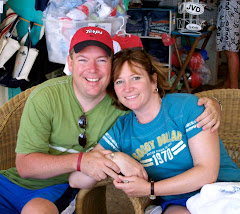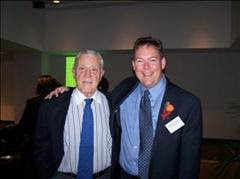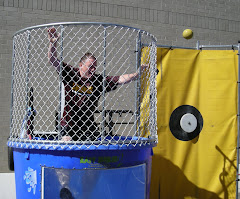Click Here to Read the Entire Article: www.education-world.com
Click Here to Find More Useful Sites: lessonslearnedinthemiddle.blogspot.com
What other sites should
Middle School Educators Know About?
Please share them in the comment section.
Click Here to Read the Entire Article: www.education-world.com
Click Here to Find More Useful Sites: lessonslearnedinthemiddle.blogspot.com
Well-meaning parents bent on improving their child's social life can unwittingly sabotage it instead. Take this quiz to see if you recognize when you are -- and when you are not -- acting in your child's best interests. If you are less helpful than you should be, you'll learn how to become more of an asset.
Here are some Communication maxims that highlight some of the rules of the game:
Principals are the main creators of a culture of communication in their schools. Good, two-way communication becomes the standard when principals serve as role models, provide resources and training, and hold staff members accountable for their communication efforts and results.
“Education is
the transmission
of civilization.”
Ariel & Will Durant
“Who dares
to teach
to learn.”
John Cotton Dana
“That is what
You suddenly
something you’ve
all your life,
Doris Lessing
Too many people
overvalue
what they are not
and
undervalue
what they are.
Malcolm Forbes (1919-1990)
publisher of Forbes magazine
THE NEW YORK TIMES
March 21, 2009
FIRST STEP IN BECOMING A WINNER: ACT LIKE ONE
By MELISSA JOHNSON
On March 14, 1998, I sat in a dark hotel room with both hands over my mouth to prevent my yelps from waking my teammate in the next bed.
A 6-foot-4 sophomore center at North Carolina, I was transfixed by the N.C.A.A. tournament game lighting up before me, a game that would persuade me to give up my full scholarship, million-dollar locker room, teammates who could dunk and fancy Nike luggage.
Sixteenth-seeded Harvard, a bunch of basketball nobodies, was battling top-ranked Stanford at raucous Maples Pavilion -- and winning.
A veritable banner-making machine, Stanford had produced more N.C.A.A. championships in women’s sports than any other college. It was a surreal and sanguine affair: the Crimson versus the Cardinal. David versus Goliath. Revenge of the Nerds.
No Ivy League women’s team had ever won a game in an N.C.A.A. tournament, and Stanford, though missing two key players to injury, was one of the strongest programs of the decade, having won the national title twice and owning a 59-game home winning streak dating to the 1993-94 season. In her spare time, Stanford’s coach, Tara VanDerveer, had led the 1996 United States team to an Olympic gold medal. She couldn’t have expected much competition from a college known for its SATs, not M.V.P.’s.
“Welcome to real basketball,” an event worker coolly offered the Cambridge women as they stepped onto the court after their cross-country flight. Meanwhile, the news media talked about them like smart little hors d’oeuvres: pigs in a blanket to the slaughter, brainiac bruschetta to whet Stanford’s appetite for the meal to come.
Yet, the Harvard women summoned the performance of their lives, including a 35-point exhibition by the all-American Allison Feaster. Miraculously leading by a point with 1 minute 32 seconds to play, they secured the win with a 3-pointer from a lanky, unassuming future E.R. physician named Suzie Miller, who wore her hair in double braids.
Stanford looked too shocked to be ashamed. With my television muted, the court erupted in silent pandemonium as I jumped up and down on the bed, waking my roommate after all.
The mastermind behind this astonishing victory -- the only time a No. 16 seed has beaten a No. 1 seed in the men’s or women’s N.C.A.A. tournament -- was a scrappy blue-collar Boston kid turned coaching icon named Kathy Delaney-Smith.
Wanting to learn from someone who could pull off this kind of magic, I transferred to play for her the next year, and she told me her secret. Any decent athlete, salesman or Starbucks barista can put on a good game face. But her philosophy, “act as if,” goes much deeper than mere swagger or theatrics. It’s a method -- a learned skill for convincing your mind that you already are what you want to become. The body follows where the mind leads.
“Act as if you’re a great shooter,” she would instruct. “Act as if you love the drill. Act as if when you hit the deck it doesn’t hurt.” Negativity, even in the form of body language, was not tolerated.
What the overly analytical Harvard players might have lacked in comparative speed or vertical jumping ability against Stanford, they made up with their power of belief.
Humor, second only to athleticism, is Kathy’s social currency. She tells recruits with a touch of local sarcasm and a devilish laugh, “What, you need a hard sell? -- it’s Hahvahd!”
In 1969 she picked up the whistle as a favor to a friend. A former synchronized swimmer who hadn’t had the opportunity to play competitive basketball, she was clueless but determined to do a good job faking it. She figured out drills as she ran them, read every sports psychology book available, and went undefeated in her first six years as a high school coach.
“I started out fooling a lot of people,” she said. But the farce became the truth -- she won more games than any other women’s basketball coach in the Ivy League and emerged as one of the longest-tenured coaches in the country. Positive thinking is hardly a revolutionary notion in sports, but her brand has been so compelling because of the authentic and irreverent way she lives it.
Along with scouting reports, wind sprints and endless shooting drills, Kathy methodically conditioned our heads. The regimen included regular meditation sessions in the locker room where we visualized bigger, stronger players in hostile arenas.
My senior year didn’t go how either of us planned. Kathy was fighting breast cancer and I had blown out my knee. We both had surgery. Feeling like a failure, I captained the team from the bench, far from the star player I was supposed to have been.
But I watched Kathy show up exhausted for practice every day, in pain and in a wig, bravely embodying her own mantra like never before. Pretending to be fearless. So I just tried to be like her. We didn’t win the league that year; there was no shot at the tournament. But we both got better.
Eleven years after Stanford, I asked Kathy what happened after the buzzer sounded. She was approached for a postgame interview. Before the camera started rolling, she whispered to the commentator Ann Meyers and asked her not to let her say anything stupid. “I’d never been on national TV,” she confided. “I was desperately acting as if.”






